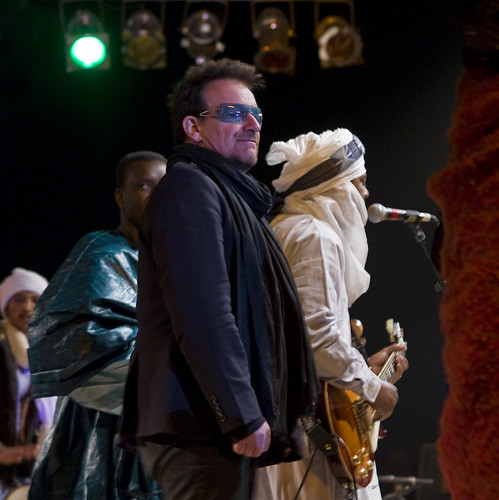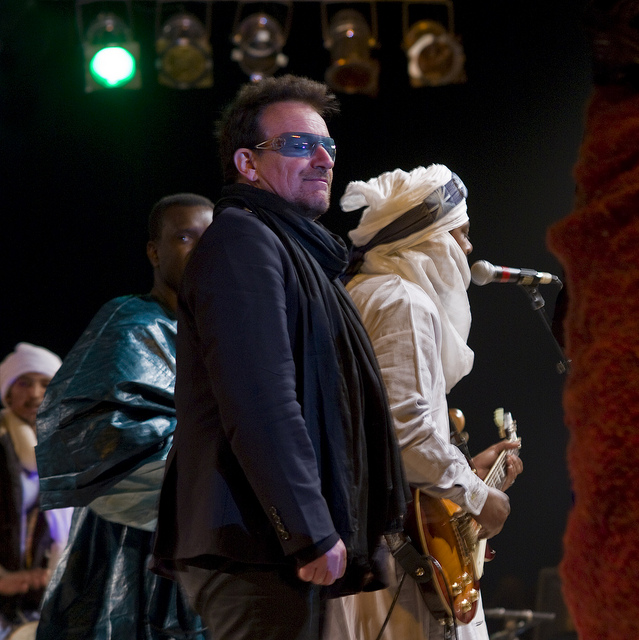Muhammad Yunus
In 1983, Muhammad Yunus of Chittagong, Bangladesh forever changed the way people view the investment potential of the poor when he founded Grameen Bank in Bangladesh. He felt that by teaching the poor financial principals then entrusting them with small loans at low interest-rates, what he calls “microcredit,” the investment would empower them to lift themselves out of poverty. Yunus focused particularly on the potential of rural women, often neglected and abused in poverty-stricken areas. His investments have yielded incredible results–over 100 similar microcredit institutions have been founded since Grameen, helping untold millions lift themselves out of poverty and provide a livelihood, education, and hope for a better future for their children. Besides his continuing work with Grameen, Yunus is also a best-selling author and founder and director of the Yunus Centre dedicated to eliminating global poverty. In October 2003 was awarded the Nobel Peace Prize for his efforts.

cc licensed flickr photo shared by Alfred Weidinger
Aung San Suu Kyi
From 1962 to 2011, Myanmar was ruled by a brutal military dictatorship guilty of some of the world’s worst human-rights violations. Since the late ’80’s Aung San Suu Kyi’s has been one of the most outspoken voices of peaceful opposition. In 1990, her National League for Democracy was 59% of the vote in the national election, which should have given her party 80% of the seats in Parliament. Instead, it placed her under house-arrest for most of the next twenty years. While under arrest in Rangoon, she used her arrest as a platform to peacefully protest the government and help her people. When she won the Nobel Peace Prize in 1991, she used the $1.3 million prize to establish a health and education trust for Burmese children. Since her release in November 2010, she has had a crucial role in remaking the government into a democracy and currently chairs the NLD.
Bono
For most of his career, U2’s Bono has used his great fame to help some of the world’s least fortunate. In 2002, he co-founded “DATA,” or “Debt, AIDS, trade, Africa” to fight against poverty and disease in developing nations. In 2005, he organized Live 8–a series of eight simultaneous concerts around the world on July 2 featuring some of the biggest names in music to raise money to relieve poor nations’ debt. His efforts have raised millions for charity and his fame has not only greatly raised public consciousness about global poverty, but has inspired many to use their own influence to do something about it.
Bill and Melinda Gates
While the name Bill Gates has long been synonymous with wealth, over the past decade, it has also been synonymous with humanitarianism. Seeing his own wealth as a source of social responsibility, he and his wife Melinda’s Gates Foundation has been at the forefront of sponsoring smart, innovative humanitarian work since its founding in 1994. Sponsoring a diverse array of programs from AIDS, malaria, and malnutrition and investing in women as small farmers in the developing world, to helping disadvantaged American kids go to college, there are few other humanitarians doing so much in as many fields as the Gates.
John Prendergast
For over twenty years, John Prendergast been one of the world’s strongest voices against genocide. The former Director for African Affairs at the National Security Council undertook his biggest challenge yet in 2007 when he co-founded the Enough Project with his colleague Gayle Smith. The Enough Project works from the bottom-up, with students, religious leaders, activists, and others to end global genocides through raising awareness and developing pragmatic solutions to permanently resolve deadly conflicts and help their victims.
Christopher Lowry is an urban planner and guest author at http://www.bestsociologyprograms.com/, a site with guides and information to help potential students review the top sociology programs online.

